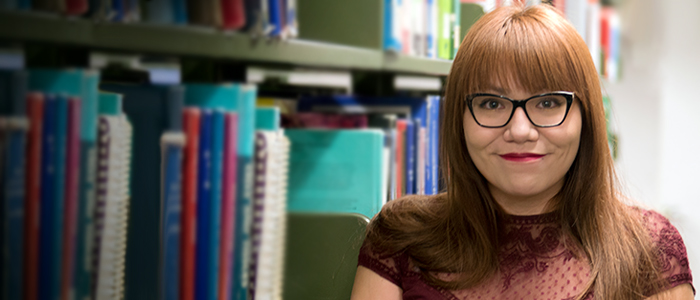Feature Article: Finding inspiration in education

By Emily Leighton, MA'13
For Karissa French, Medicine Class of 2017, and her family, education is a lifeline amid the damaging ripple effects of residential schools, substance abuse and inequality.
Watching her parents return to school as mature students – overcoming personal challenges and eventually earning their master’s degrees – served as tremendous inspiration for the young aspiring physician. “I was able to see how education can turn someone’s life around,” she said. “My parents always wanted me to focus on education. And if you’re told you can do it, you just try for it.”
Born in Calgary, French lived in Kamloops, Montreal and Ottawa during her childhood and teenage years. Her mother is part of the Shuswap First Nation and her father is from the Nazko First Nation. Both Indigenous communities are located in the Interior of British Columbia.
With a keen interest in science, French pursued a bachelor of science degree in forensics and biochemistry at the University of Windsor.
During her studies, she completed a forensic toxicology placement at a medical examiner’s office in Oakland Country, Detroit – an experience that inspired her to consider a career in medicine.
“I was invited to the autopsy suite to observe one day and watched how the doctor determined cause of death. It was amazing to me how much information can be revealed,” she said. “I looked up a career in medicine right after that.”
Following graduation, French worked for the Institute of Aboriginal Peoples’ Health, part of the Canadian Institutes of Health Research (CIHR) in Ottawa.
She went on to complete a master’s degree at Cardiff University in Wales, UK, before entering Schulich Medicine in 2013. She filled one of three seats the School reserves for First Nations, Métis or Inuit students in each year of the MD program.
“I like the structured approach to the School’s program,” she said. “There’s a lot to learn in medicine, but the courses and electives make it all very interesting and motivating.”
Being a part of Schulich Medicine remains a source of pride for the 28-year-old. “There’s always been a part of me that wanted to prove I could do this,” she said. “Being in medical school is a big accomplishment, and I’m excited that this is where my path has taken me.”
An interest in forensics continues to influence and inform French’s future. With graduation approaching, the fourth-year-student is looking to specialize in forensic pathology and eventually return to Alberta to work as a medical examiner.
“From personal experience, it means a lot to families to have some answers when a loved one dies suddenly,” she said. “I’d like to be able to help people in that way.”
Throughout her studies, French has received considerable support from her First Nations community in British Columbia. “They are always there to keep me going and encourage me,” she said.
She is now committed to giving back, and is particularly interested in helping raise awareness about missing and murdered Indigenous women and girls in Canada.
“We’re more likely to go missing, more likely to meet a terrible fate just because of who we are,” she said. “It’s something that affects many Indigenous communities and I’d like to be able to help when I’m in a position to be able to add my voice.”
For French, inner strength and resilience have been constant companions on the path to medical school and beyond. “I always try to have a positive outlook,” she said. “I was once cautioned about being looked down upon because of the negative stereotypes associated with Aboriginal people, but I’ve found it to be a very different experience. There’s a lot of help and support if you’re willing to try. My parents and my community laid a lot of the groundwork for me to dream big, and I want that to be the same experience for future generations."









